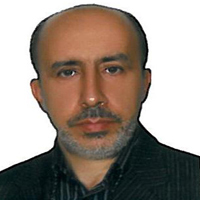Prevalence of metabolic syndrome and its components in over 24 years old population of Qazvin (2012)
Author(s):
Abstract:
Background
Despite the importance of metabolic syndrome and its components in the incidence of noncommunicable diseases especially cardiovascular diseases, its prevalence, incidence and trend are not clear. Objective
The aim of this study was to determine the prevalence of metabolic syndrome and its components in Qazvin, Iran. Methods
This descriptive study was conducted in 996 men and women over 24 years old in mindoodar district of Qazvin, 2012. Data were collected using interview, past medical and drug history and anthropometric and biochemical measurements. Findings
The prevalence of metabolic syndrome was 33% (30.9% in men and 34.9% in women) and increased with age. The most common component of metabolic syndrome was low high density lipoprotein (HDL) cholesterol (66.6%) and the least prevalent component was high blood pressure (24.8%). The order of prevalent components was different according to gender. In men the most common component was low HDL cholesterol which was followed by high level of serum triglycerides and impaired fasting glucose. In women the most common component was low HDL cholesterol which was followed by central obesity and high level of serum triglycerides. Conclusion
High prevalence of metabolic syndrome and its related risk factors that increase with age, other diseases and their complications necessitates the implementation of efficient preventive programs to decrease the related risk factors.Keywords:
Language:
Persian
Published:
Journal of Inflammatory Diseases, Volume:18 Issue: 3, 2014
Pages:
11 to 17
https://magiran.com/p1266090
سامانه نویسندگان
مقالات دیگری از این نویسنده (گان)
-
Factors Determining Primary Coronary Slow Flow Phenomenon among Opium Users and Non-users: A Case Control Study in Northern Iran
Hamid Reza Javadi, Seyed Mostafa Mirakbari *, Abbas Allami, Ebrahim Salavati
Addiction & Health, Summer 2022 -
Determining Cardiometabolic and Antioxidant Effects of Olive Leaf Extract in Patients with Essential Hypertension
Hayedeh Yaghoobzadeh, Sepideh Mehravar, , Mohammad Reza Memarzadeh, Seyyed Mehdi Mirhashemi*
Journal of Inflammatory Diseases,



